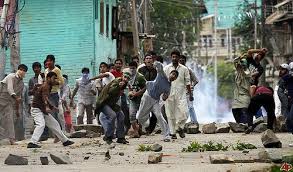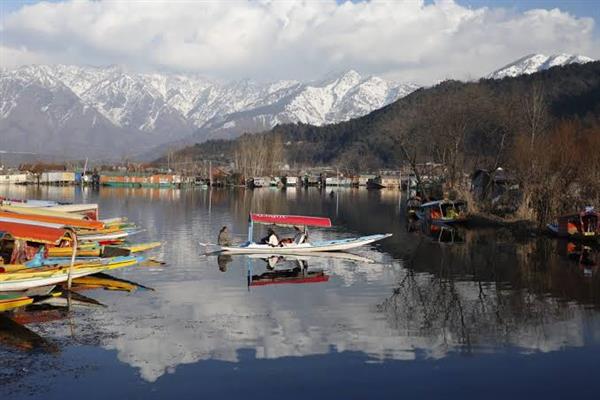October 27 is the day Kashmir became a part of India through accession and Indian troops first landed on Kashmir to help it fight its battle against invaders.
October 27 is the day Kashmir became a part of India through accession and Indian troops first landed in Kashmir to help it fight its battle against invaders. But the separatist forces see that day as the start of an occupation of the Valley that they are still fighting.
Kashmir’s Joint Resistance Leadership (JRL) has called for a shutdown in the Valley on Friday which they, like many Kashmiris, see as a “black day”.
“27 October 1947 is an unfortunate day for the Kashmiris when we were deprived of our freedom and liberty and India against the wishes of the people landed its troops here. The people of the Jammu & Kashmir were neither asked for their viewpoint about this forced occupation and nor are their wishes and aspirations being respected even today,” JRL said in a statement, according to Greater Kashmir.
This sentiment is a result of a conflicted history which started with the hurried accession of Kashmir to India. Here’s a short history of what went down 70 years ago.
In August 1947, when India became independent, all 565 princely states had to decide whether to join the Dominion of India or Pakistan.
Maharaja Hari Singh, the ruler of Jammu and Kashmir, could not decide which country to join. While he was a Hindu, his population consisted of a Muslim majority. “He therefore did nothing,” wrote Victoria Schofield, author of Kashmir in Conflict, in a BBC article.
In a telegram to Lord Mountbatten, Hari Singh said that he needed time to decide which nation he wanted to accede to and therefore, approached India and Pakistan to enter into Standstill Agreements.
While Pakistan accepted the agreement, India wanted to discuss the matter further. The discussion failed to take place when Kashmir faced invasion from Pashtun tribesmen belonging to Pakistani territory in October, 1947.
At the same time, the Pakistan government started squeezing aid into Kashmir. “Though we have got a Standstill Agreement with the Pakistan Government that government permitted steady and increasing strangulation of food, salt and petrol to my State,” Hari Singh wrote to Mountbatten, requesting intervention. Besides, there was an internal revolt taking place in Poonch district.
Hari Singh mentioned that massive, loot, rape and destruction of life were taking place in Kashmir. Failing to maintain the law and order situation, the ruler asked for military assistance from India.
Hari Singh was already facing threat from Sheikh Abdullah, who was imprisoned for launching the Quit Kashmir movement against the Maharaja, the Muslim Conference, which wanted accession to Pakistan, and internal rebellion.
But help was denied by Governor-General Mountbatten who said that the Indian Army was only supposed to defend Indian territory. In a hurried manner, Hari Singh signed the Instrument of Accession.
According to the terms of the Instrument of Accession, India’s jurisdiction was supposed to be in areas of external affairs, defence and communications.
On October 27, Indian Forces were airlifted into Srinagar to fight the armed invaders and rebels. This fight eventually led to the first Indo-Pakistan war as Pakistan contested the accession, suggesting it was fraudulent and the Maharaja had acted under duress.
Pakistan argued that Hari Singh could not have signed an agreement with India when Kashmir was still in a standstill agreement with Pakistan.
The Kashmir dispute
Pakistan also argued that because Hari Singh fled from the valley of Kashmir, he was not in control of the Valley and therefore not in a position to take a decision on behalf of his people, writes Victoria Schofield.
The then Governor-General, Lord Mountbatten, had accepted the Instrument of Accession with a remark that he understood the accession to not be final and that there would be a plebiscite to decide the future of Kashmir. The same was reiterated by then Prime Minister Jawaharlal Nehru and he wrote about it in a telegram to Pakistan’s Prime Minister Liaqat Ali Khan.
The Kashmir issue was referred to the United Nations by the Nehru-led government in 1948, following which the international watchdog mediated the ceasefire between India and Pakistan, leaving only two thirds of Kashmir under Indian administration. But even after multiple attempts, the plebiscite failed to take place giving way to the present separatist demands and continuing clashes between the Indian Army and civilians.






